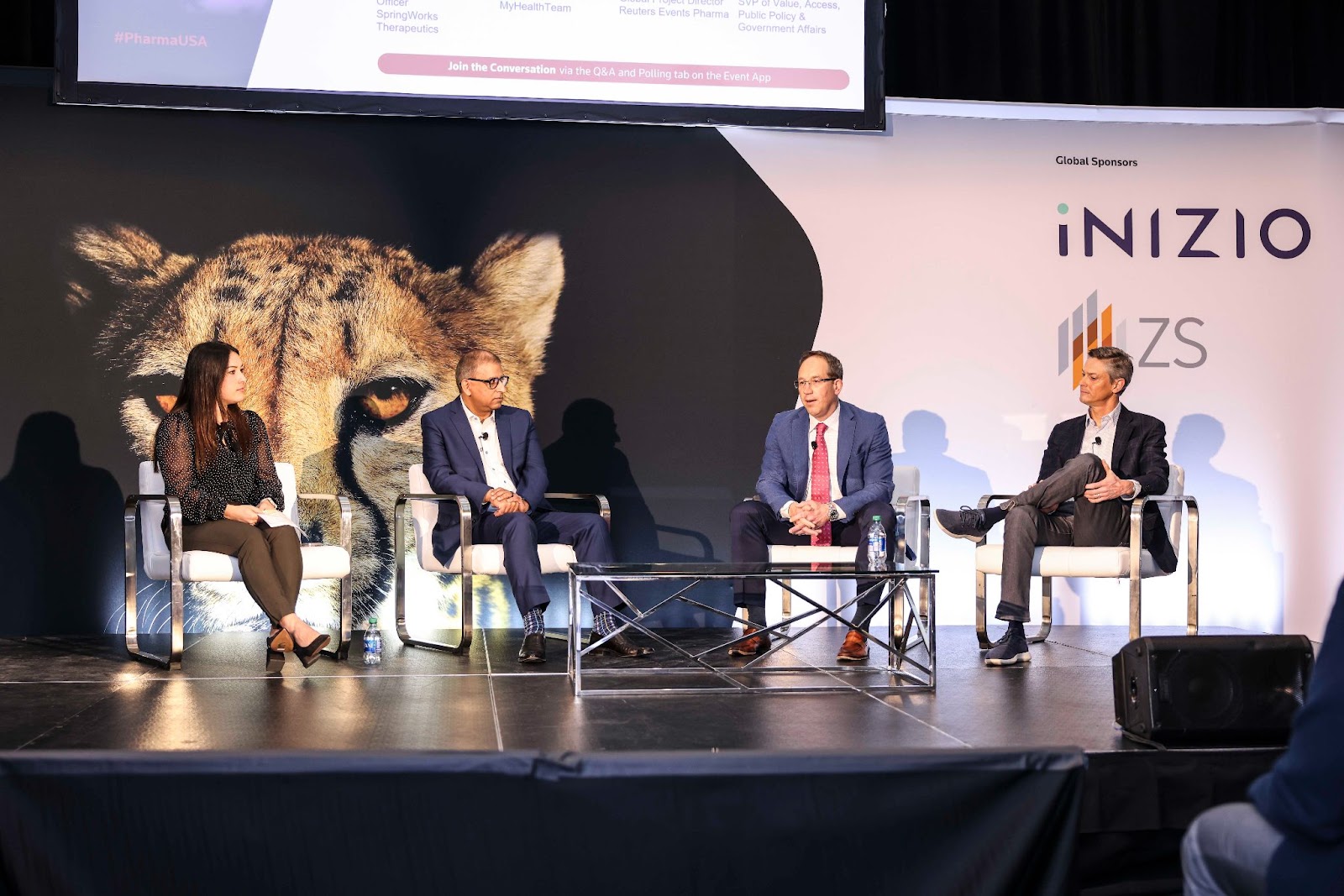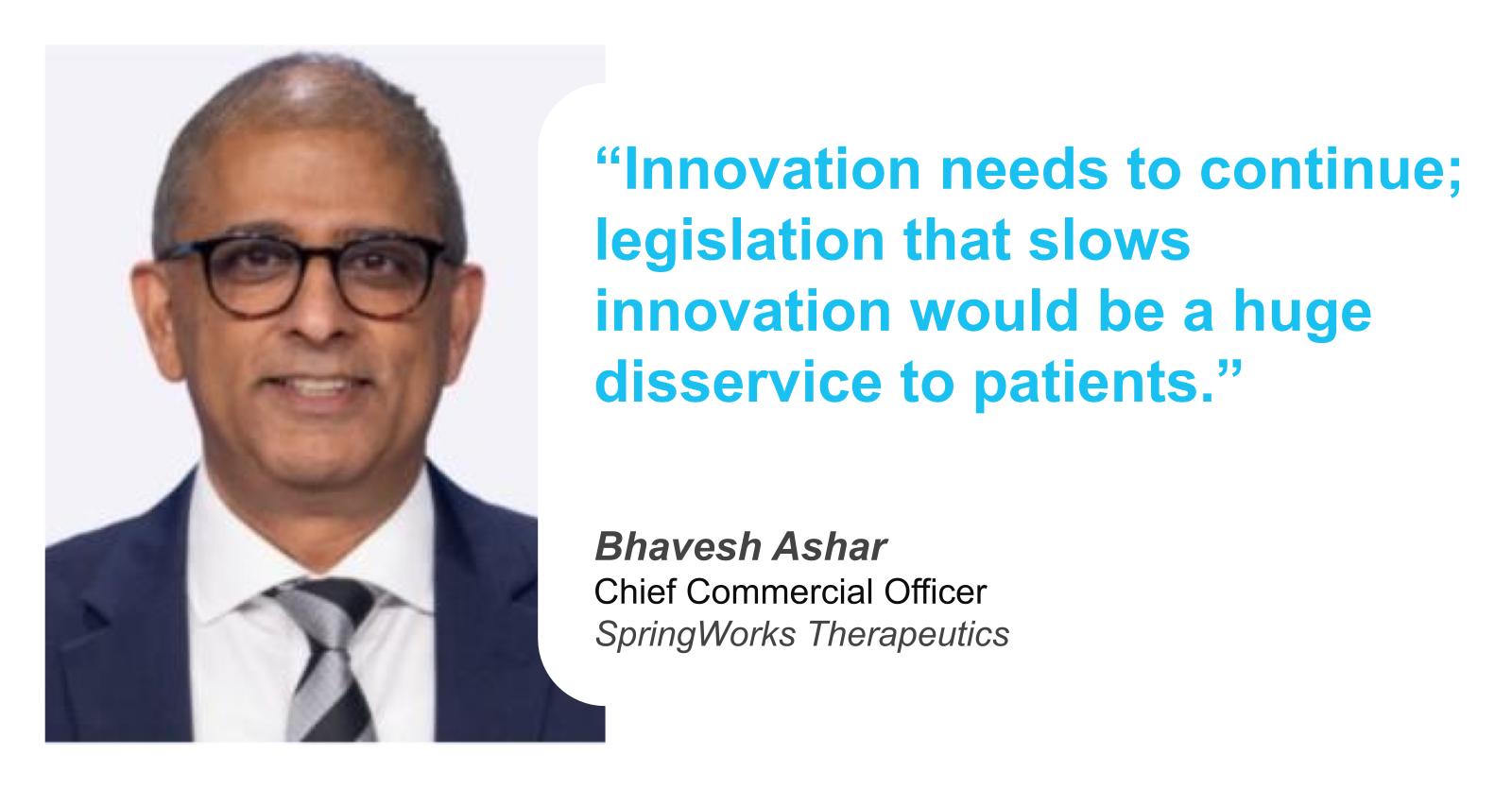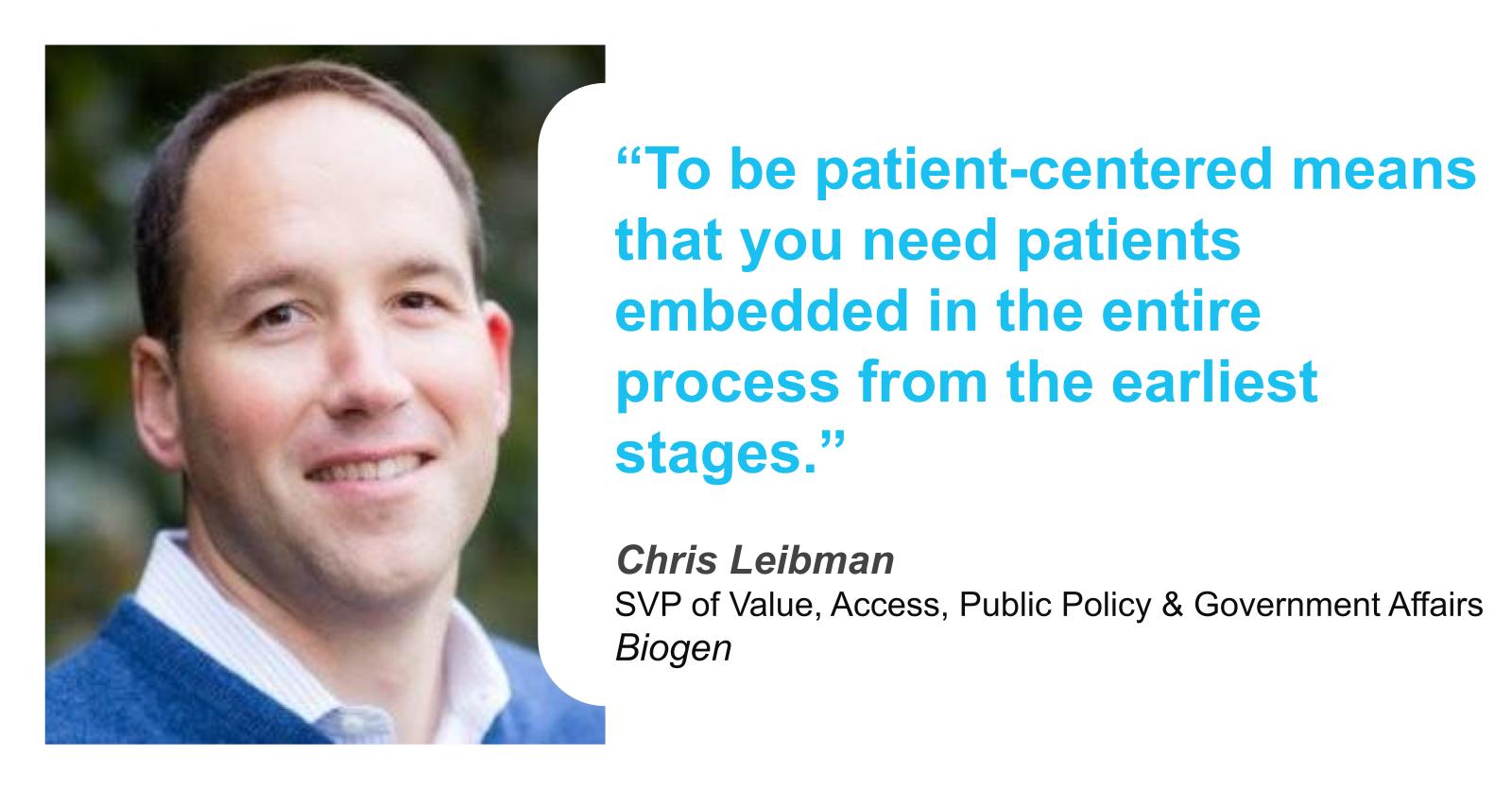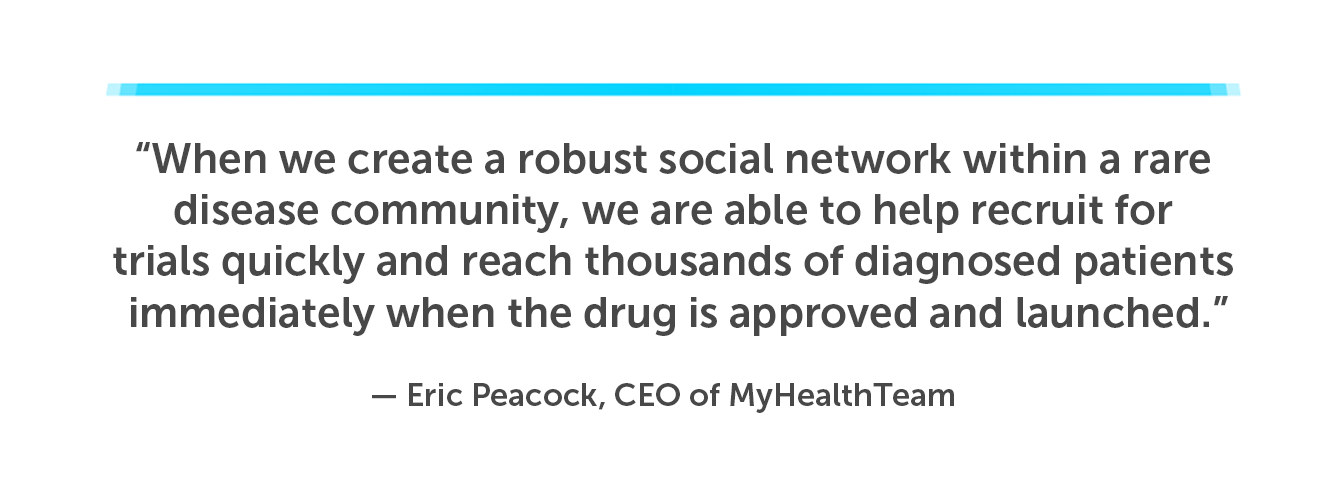Top 5 Themes From Reuters Pharma USA: A Glimpse Into the Future of Pharma Marketing
The Reuters Pharma USA conference, held this spring in Philadelphia, is one of the best conferences attended by and featuring pharma executives. Here are our notes on some of the top themes and actionable takeaways from the event.
1. Diversity and Inclusion in Pharma
The president of GSK, Maya Martinez-Davis, powerfully stated in the keynote speech that tackling health equity requires a diverse team. Embracing diversity and inclusion is not just the right thing to do, it actually fuels Innovation. New people bring new ideas that lead to groundbreaking drugs, better treatment options, improved access, and ultimately, a bigger addressable market.
A team that reflects the diverse populations it serves is better equipped to understand and address their unique needs and translate them into go-to-market strategies. The result? Stronger patient engagement, improved brand loyalty, and a competitive edge. Diversity, equity, and inclusion (DEI) is a strategic imperative for pharma companies and a win-win for patients, for profits, and for the future of pharma.

At Reuters Pharma USA in Philadelphia, Bhavesh Ashar, Chris Leibman, and Eric Peacock discuss innovation and equitable access during the keynote panel.
2. Sustainable Medical Innovation and the Inflation Reduction Act
Bhavesh Ashar, chief commercial officer of SpringWorks Therapeutics, reflected on the significant progress made in oncology and rare diseases over the last 10 to 15 years. He emphasized, “Innovation needs to continue. Legislation that slows innovation would be a huge disservice to patients.”

An unintended consequence of the Inflation Reduction Act is that, by allowing Medicare to negotiate certain drug prices after seven to 13 years, it may discourage and stifle some types of drug development. In oncology, it may provide an incentive to manufacturers to do their initial launches in smaller indications outside of the U.S. to avoid “starting the clock” on that seven to 13 year window. To mitigate these challenges, pharma has to expedite clinical trials for new indications and rethink how they engage patients to support success in their market launches. Chris Leibman, senior vice president of value, access, public policy, and government affairs at Biogen, said, “To be patient-centered means that you need patients embedded in the entire process from the earliest stages.”

Current statistics reveal that, on average, 80 percent of clinical trials never fully recruit, and 90 percent experience delays of six to 12 months in their recruiting schedule. These delays erode the window of time drug manufacturers have to recoup investments on later indications.
Eric Peacock, CEO of MyHealthTeam, shared that the demand from pharma partners to launch social networks in rare diseases has gone up significantly since the Inflation Reduction Act was introduced. “We have already launched social networks in 13 different rare conditions and have several more coming,” he said. “When we create a robust social network within a rare disease community, we are able to help recruit for trials quickly and reach thousands of diagnosed patients immediately when the drug is approved and launched.”

3. AI in Pharma
Rebecca Lowell Edwards, chief communications officer at Organon, shared how her team “created a chatbot to engage with patients, educate them, and answer questions.” She felt this innovative approach improved patient experiences.
Expounding on this notion, Erica Taylor, vice president and chief marketing officer at Genentech, emphasized the significance of tailoring content to individual preferences. “Make content as personal as possible,” she said. This will help your message resonate on a deeper level, thereby fostering stronger connections and driving meaningful engagement.
Christina DiBiase, head of commercial solutions at Amplity Health, highlighted how data and AI are revolutionizing interactions between patients and health care providers (HCPs). Her team analyzed “a qualitative dataset of HCP and patient conversations” and learned that “patients don’t know the right questions to ask the HCP.” This underscores the importance of bridging this gap through informed, targeted, and relevant communication and content.
Lee Gervitz, vice president and head of North America medical at Biogen, pointed out that AI will be critical in medical affairs. When he interviews candidates for his team, he asks, “How do you use AI in your life?”
Gervitz highlighted the dual nature of AI innovation, emphasizing its reliance on both internal capabilities and external collaborations. A consensus in the industry is that AI will serve to augment, rather than replace, the marketer’s role. This recognition underscores the transformative potential of AI as a complementary tool in shaping future marketing strategies within the pharmaceutical landscape.
4. The Impact of Omnichannel Marketing on Go-to-Market Strategies
The subject of omnichannel marketing took center stage, emphasizing the importance of cohesive strategies that resonate with both health care professionals and patients. Krista Pinto, president of deployment solutions at Eversana, explained the critical need for a holistic approach. “Patient engagement is maximized and [companies] more effectively drive behavioral change when [they] seamlessly integrate all of their channels,” she said.
Pinto highlighted the transformative potential of partnerships, citing the new collaboration between Eversana and MyHealthTeam as a prime example. This strategic alliance demonstrates the power of coordinated HCP and patient outreach, generating a compelling “surround sound” effect that amplifies the impact of marketing initiatives.
5. Really Listening to Your Patients
To underscore a conference theme, Reuters walked the walk by inviting patients to weigh in on patient-centricity in pharma marketing. Kim Rojek, managing director of client services at Slalom, led a panel discussion featuring patient advocates and industry leaders. The panelists stressed the importance of empathy, transparency, and patient engagement.
Holly John, a rare disease patient and senior director of patient advocacy at Agios Pharmaceuticals, highlighted the profound impact of connecting with someone who shares the same rare disease, even in later stages of life. Additionally, she stressed the importance of credible education and meaningful connections for patients.
Katie Hogg, senior director of specialty customer centricity at GSK, underscored the necessity of “meeting people where they are.” She emphasized the value of testing models to better listen and learn from patients. Hogg also noted the importance of acknowledging patients’ expertise and the role of trusted patient advocacy groups.
Rucha Shah, a patient advocate and president of the CHOP-PENN Patient and Parent Advisory Council for Thalassemia, spoke about the need to have empathy for patients, act on it, and then follow up to demonstrate how feedback was incorporated. Shah said, “It is so important to not use the word ‘patient’ … and to involve patients from the start of a project.”
All panelists agreed on the critical role of engaging with patients authentically, respecting their individuality while acknowledging broader community needs, and fostering an environment of trust and transparency. They affirmed that these approaches lead to better health outcomes and stronger, more meaningful connections between patients and health care professionals.
Overall, the Reuters Pharma USA conference provided a comprehensive look at the future of pharma and a roadmap for navigating the ever-evolving world of pharma marketing.
If you’re interested in implementing any of the strategies shared by these thought leaders in a community of diagnosed patients, please reach out to us at partnerships@myhealthteam.com or contact us in the form below.
To read more industry insights, please visit “Zero Party Data Defined in 30 Seconds and Why It Matters to Health Marketers” and “Trailblazing in Rare Disease Patient Engagement: 5 Lessons From Pharma’s New Playbook.”

